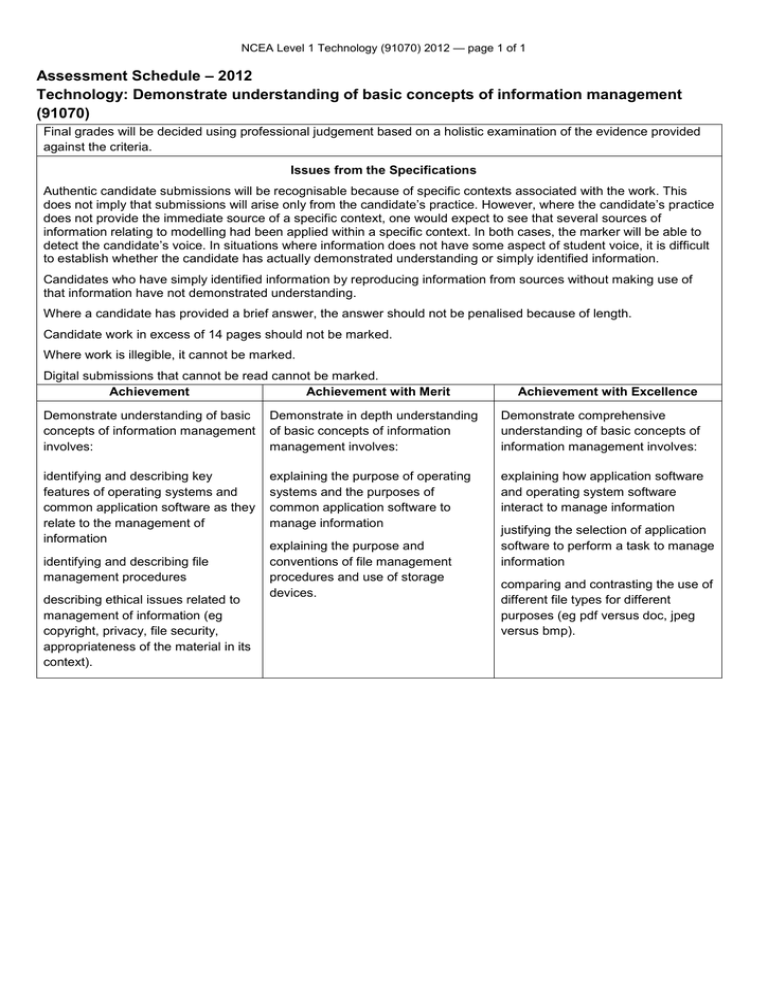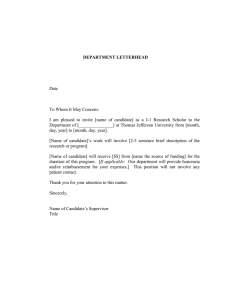– 2012 Assessment Schedule
advertisement

NCEA Level 1 Technology (91070) 2012 — page 1 of 1 Assessment Schedule – 2012 Technology: Demonstrate understanding of basic concepts of information management (91070) Final grades will be decided using professional judgement based on a holistic examination of the evidence provided against the criteria. Issues from the Specifications Authentic candidate submissions will be recognisable because of specific contexts associated with the work. This does not imply that submissions will arise only from the candidate’s practice. However, where the candidate’s practice does not provide the immediate source of a specific context, one would expect to see that several sources of information relating to modelling had been applied within a specific context. In both cases, the marker will be able to detect the candidate’s voice. In situations where information does not have some aspect of student voice, it is difficult to establish whether the candidate has actually demonstrated understanding or simply identified information. Candidates who have simply identified information by reproducing information from sources without making use of that information have not demonstrated understanding. Where a candidate has provided a brief answer, the answer should not be penalised because of length. Candidate work in excess of 14 pages should not be marked. Where work is illegible, it cannot be marked. Digital submissions that cannot be read cannot be marked. Achievement Achievement with Merit Achievement with Excellence Demonstrate understanding of basic concepts of information management involves: Demonstrate in depth understanding of basic concepts of information management involves: Demonstrate comprehensive understanding of basic concepts of information management involves: identifying and describing key features of operating systems and common application software as they relate to the management of information explaining the purpose of operating systems and the purposes of common application software to manage information explaining how application software and operating system software interact to manage information identifying and describing file management procedures describing ethical issues related to management of information (eg copyright, privacy, file security, appropriateness of the material in its context). explaining the purpose and conventions of file management procedures and use of storage devices. justifying the selection of application software to perform a task to manage information comparing and contrasting the use of different file types for different purposes (eg pdf versus doc, jpeg versus bmp).
